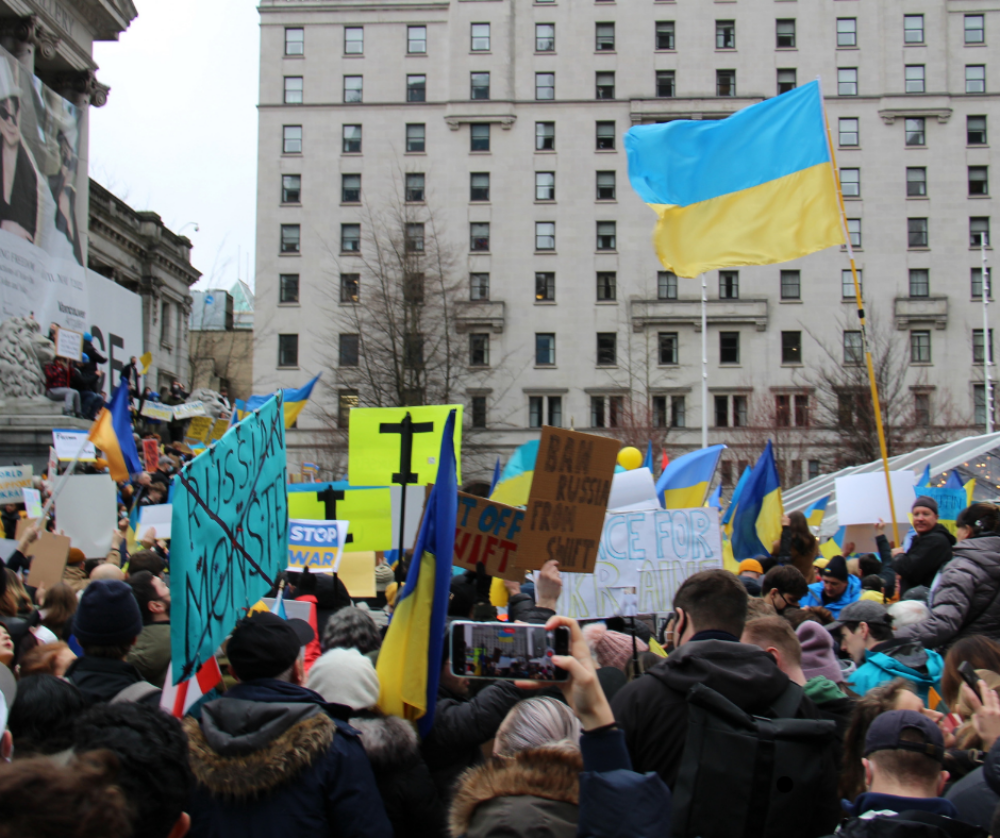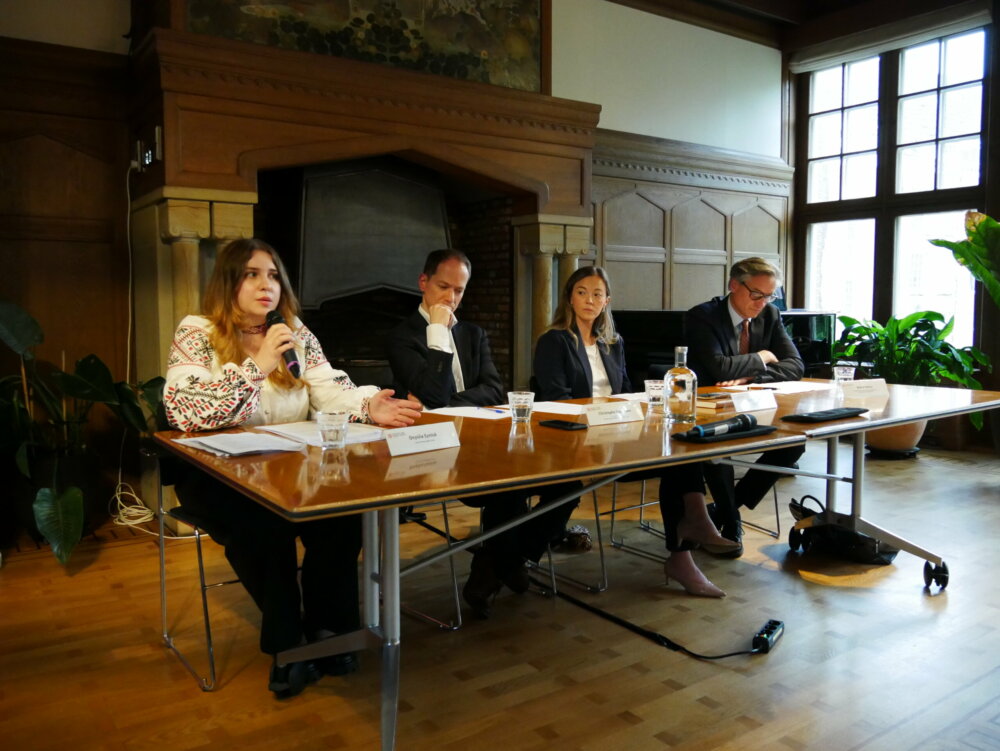Multilateralism at work: The OSCE Asian Partnership for Co-operation
In this written interview, Ambassador Clemens Koja, Austria’s Permanent Representative to the OSCE in Vienna, speaks about the value of the OSCE Asian Partnership as well as the importance of multilateral cooperation. Austria currently chairs the OSCE Asian Contact Group.
Ms. Eirini Lemos, the NATO Secretary General’s Representative for the OSCE, explains the cooperation between NATO and the OSCE. The interviews were conducted in writing by Cynthia M. Lardner.
Excellency, you recently spoke at the Austrian Embassy in The Hague about the OSCE Asian Partnership for Co-Operation, along with the Ambassadors from the OSCE Asian Partner States. Why is the Asian Partnership an important outreach endeavour for the OSCE?
Ambassador Koja:In an increasingly interconnected world it is clear that security does not end or begin at Europe’s borders: issues such as cyber security, migration, human trafficking or non-proliferation to name but a few are transregional or global in their nature.
For that reason, the partnership between the OSCE and a number of Asian countries helps both sides to advance on security matters. On the partner side the OSCE is often seen as an important contributor to peace and stability and sometimes also as a model for deepening regional cooperation. Partners also take great interest in resolving conflicts in the OSCE area, in particular in the crisis in and around Ukraine, and contribute substantially to the OSCE’s activities there.
What do you see as the greatest challenge facing the Asian Partners for Co-Operation?
Koja:It is undeniable that Partners are by their nature diverse: Afghanistan shares a long border with the OSCE and for this reason takes a natural interest in the numerous OSCE projects in Central Asia. Other more remote partners place their focus more on the common security issues and lessons learned from the OSCE as the world’s largest regional security organisation.
Does the Asian Partnership for Cooperation discuss the issue of free trade and, conversely, trade wars?
Koja: The OSCE increasingly discusses issues such as trade and environment, however does not duplicate EU or WTO activities. It therefore concentrates on the concept of economic connectivity as a means of enhancing trust and co-operation between partners and increasing political stability by increasing living standards.
Are there issues that fall outside of the ambit of the Asian Partners for Co-Operation?
Koja:Obviously, the discussions with partners cover only issues within the OSCE’s ambit, i.e. the very wide and comprehensive security approach the OSCE stands for with its three dimensions.
Do you consider multilateral alliances and partnerships essential to creating a more peaceful and just world?
Koja: In our perspective, it has become clear that the complexity of today’s challenges in several fields calls for multilateral approaches – at least for those aspiring to sustainable answers and solutions. More multilateralism also means more credibility and a stronger acceptance by the people.
The OSCE, as largest regional organization under Chapter VIII of the United Nations Charter, has always relied on the concept of comprehensive, indivisible security based on a cooperative method. In that vein, Austria has always advocated the promotion of effective multilateralism in order to ensure political stability, overall security, socio-economic progress as well as ecological sustainability.
The OSCE is comprised of 57 participating States. Has there been any objection by any OSCE participating State to the OSCE Asian Partners for Co-Operation?
Koja: With its 57 participating States, ranging from Vancouver to Vladivostok, the OSCE provides a vital platform for dialogue andthe sharing of norms, commitments and expertise. Yet, an outreach to our immediate neighbours is valuable, indeed indispensable, as our security is inseparably linked to theirs’s. This concerns both our partners in the Mediterranean and in Asia.
Nor is this approach questioned by the OSCE States. On the contrary, we are happy when third countries express their interest in the organization and seek an exchange. But it is clear that according to the basic principle of our organization – the consensus – all participating States must agree to a formalization of such a co-operation. As far as I am informed, China never applied for an official partnership status. They were, however, involved in the discussions on enhancing connectivity in the Eurasian area initiated by Germany’s OSCE Chairmanship in 2016.
Ms. Lemos, NATO established an office in Vienna for liaising with the OSCE Asian Partners for Co-operation. Why has NATO made this a priority?
Lemos: NATO has opened the liaison to the OSCE and other Vienna based organizations, following a Warsaw decision to enhance the practical and political co-operation with the OSCE. This reflects the long-standing relationship, which dates back many years. As such the office doesn’t have any geographical focus, and is not specifically mandated to liaise with the OSCE Asian Partners for Co-operation.
The OSCE is an important organization for NATO – reflected very well at the Warsaw Summit declaration – not least for its role as a custodian of the rules based order and important European security agreement and Confidence- and Security-Building Measures.
NATO is an excellent example of a working multilateral institution. Does NATO consider multilateral alliances and partnerships essential to creating a more peaceful and just world?
Lemos: NATO attributed great importance to multilateralism and relations with external partners and international organizations. This was very much enshrined also in our comprehensive approach policy, already in 2008, where we endeavored to include NATO’s efforts as part of an international strategy for sustainable piece efforts. Our experience in Afghanistan and in the Balkans demonstrated the need that security and development go hand in glove. Multilateralism complements bilateral relations, and allows a more comprehensive perspective of addressing challenges. As you know, in the same spirit in 2010 we opened an office to UN. So, NATO’s outreach to its associated partners, will be through regular OSCE events and activities, whenever we are involved.
How is NATO working with the OSCE and its Asian Partners for Co-operation on the five established areas: new security threats and a new security paradigm; search for conflict prevention in the new security circumstances; confidence- and security-building measures in Northeast Asia; comprehensive security in Central Asia, the human dimension of security, and human trafficking? Is the relationship “generic” or of a general consultative nature?
Lemos:NATO has developed its own partnership agreements with a number of countries in the Asia-Pacific region, namely Japan, the Republic of Korea, Australia and New Zealand. These are not related to NATO’s cooperation with the OSCE.
*Cynthia M. Lardner is an American journalist residing in the Netherlands and is a contributing editor to Tuck Magazine and the International Policy Digest. Ms. Lardner holds degrees in journalism, law, and counseling psychology.



Comments
* Your email address will not be published